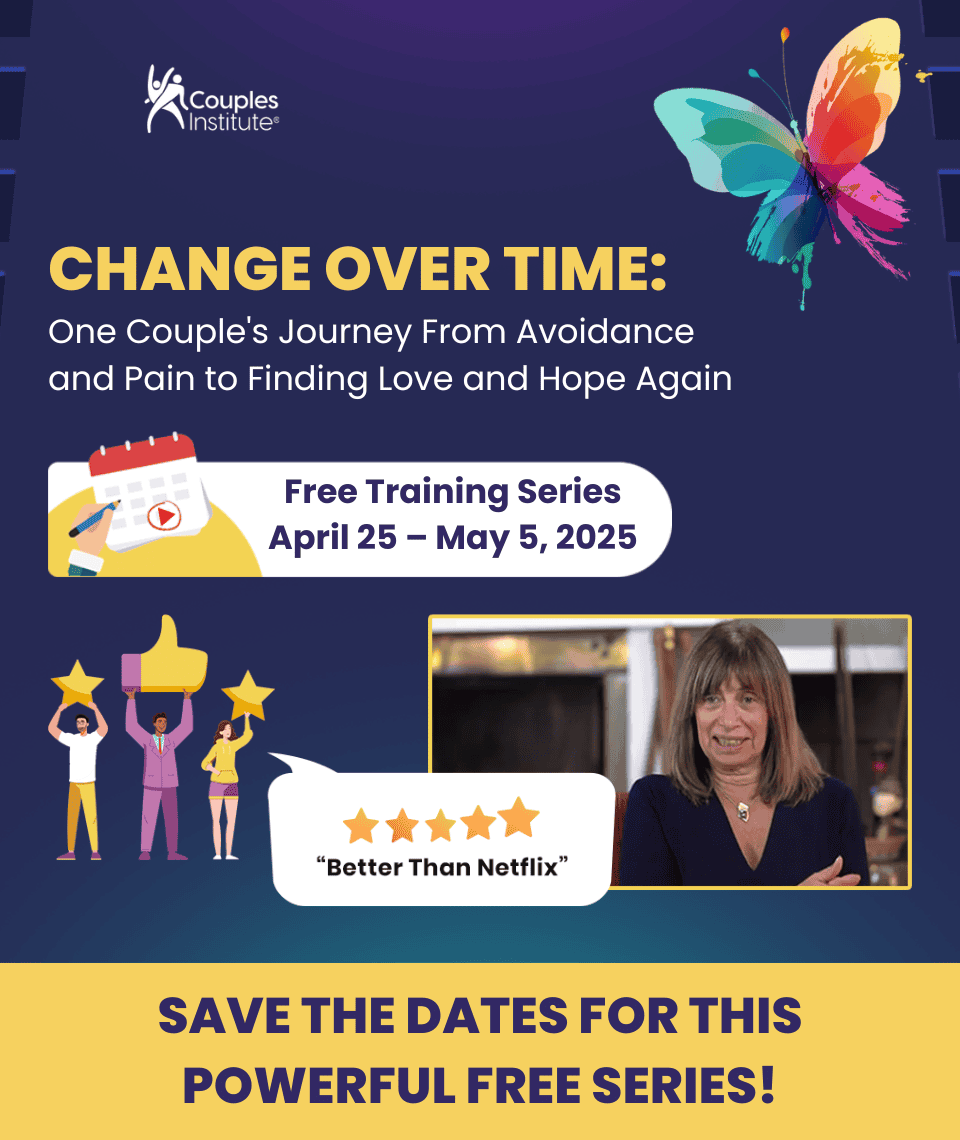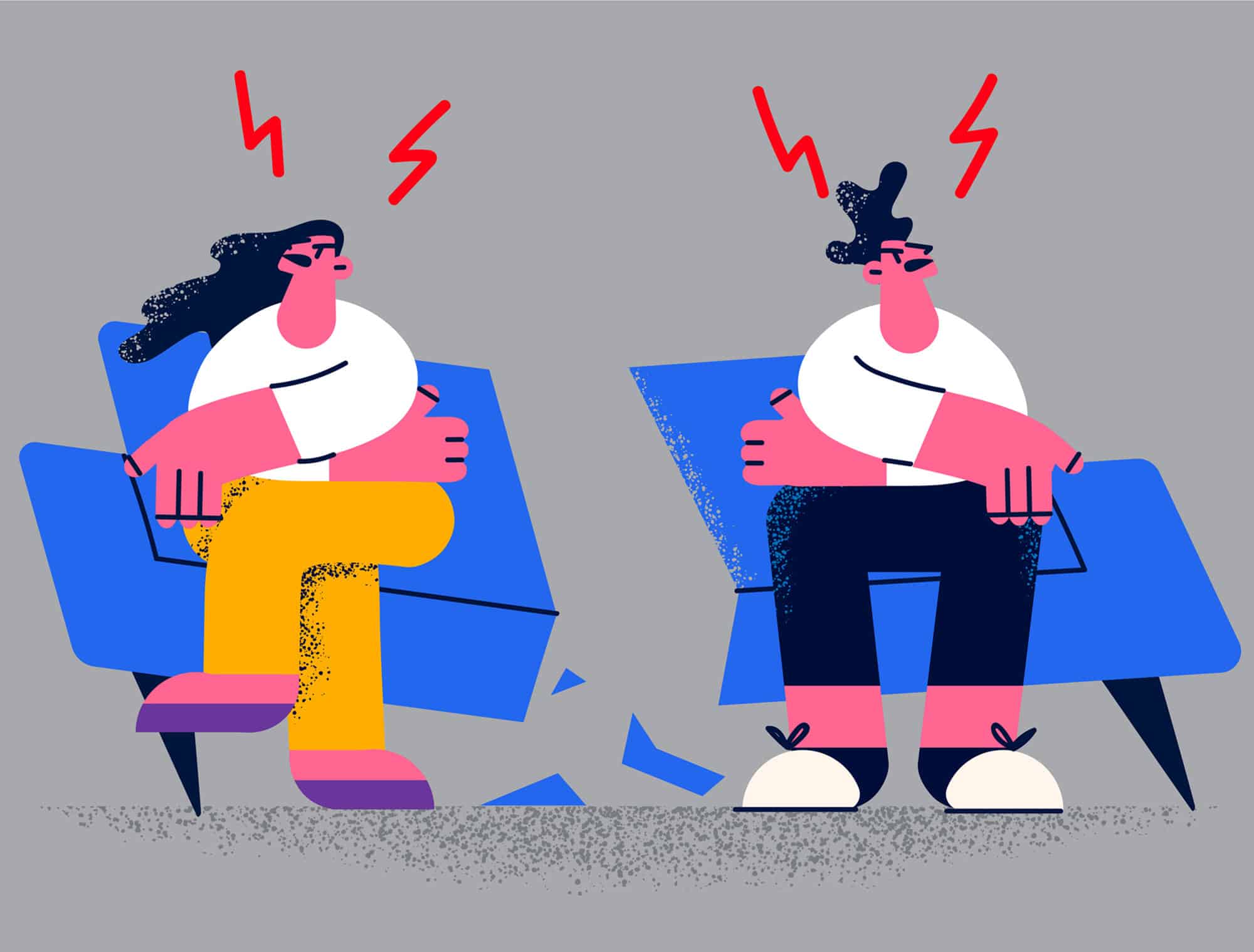6 Advantages of Making This Choice
This month we are writing our thoughts about the question that is asked more often than any other when we are teaching and training. The question is: Do you see partners individually when you are working with the couple?
Our resounding answer is yes. There are more advantages of doing this than there are disadvantages. However, each case must be evaluated on a case by case basis.
First, let's be clear. We are not talking about taking either partner into long-term, intensive individual therapy with us. We are talking about intertwining couples' and individual sessions throughout the process of couples work, while keeping each partner's goals in the forefront.
Couples frequently come to therapy to improve their patterns of interaction. Often they are unskilled in their ability to deal successfully with their differences. Their exchanges are painful and the couples are unable to recover from fights or periods of withdrawal. They want support and nurturing that is not present or is insufficient.
We believe in taking time with the couple to identify the type of relationship they would like to create. Their goals might include any of the following:
-Make more collaborative decisions
-Develop a shared enjoyable activity
-Parent more effectively together
-Share the responsibility of understanding finances and making financial decisions
Especially when couples have lofty or ambitious goals, they often fall short in both their ability to execute them and in their recognition about the impact they have on one another.
Meeting individually with the partners at certain opportune times can provide leverage for the skilled therapist. Let's look at some of the advantages.
1. Have you ever had trouble establishing rapport with a partner who is bitter, rigid and unrelenting in their view of what is wrong with the relationship? Meeting individually gives you the opportunity to go slowly and understand more completely both the depth and origin of this partner's anger.
2. Get a more complete picture of what is happening from each partner's perspective.
3. Hear a summary without activating the other partner's defensiveness.
4. Uncover vulnerability in a more protected environment.
5. Pursue more complete information about secrets or hidden issues like substance abuse.
6. Explain your perspective or carefully confront a highly defended partner when they do not have to save face in front of the other.
Let's also look at some of the stressors involved in meeting individually:
1. It takes time and attention to clarify issues of confidentiality.
2. You must have clear boundaries and stay firm so you don't get pulled into alliances that are unproductive.
3. You may have to deal with each partner's competitiveness.
4. You do not have control over what one partner tells the other you have said.
5. To be successful intertwining individual sessions, you must be willing and able to handle any negative reactions from the partner who was not present.
If you are having difficulty deciding whether or not to see particular partners individually, consider contacting Pete, Ellyn or one of the Couples Institute Associates for a telephone consultation. The Couples Institute is a ready resource for you and your practice. Visit our website www.couplesinstitute.com for articles, products, and contact information.

 We respect your privacy.
We respect your privacy.




Thank you for discussing this subject.
This is helpful and as a therapist, makes sense.
Can you point to any research to help ground this best practice?
I have a specific question, if a couple has their own individual therapist, would it be reasonable for the two therapist to co-facilitate a couples session in order to minimize the impact of therapeutic rapport?
Bethany-What you suggest can be very powerful when the two therapists can work well together.
Due to the Coronavirus pandemic I’m wondering about seeing a couple remotely by zoom. I think it would be quite difficult and may see them separately first for a few sessions in the hope that lockdown rules will be eased in a few weeks and I can see them together in my consulting room rather than remotely. Do you have any thoughts on this?
If one person in a relationship has a therapist that they see independently, is it wise to use that same therapist for couples counseling? It seems that this could set a therapist up to having “alliances that are unproductive” once the couples counseling starts.